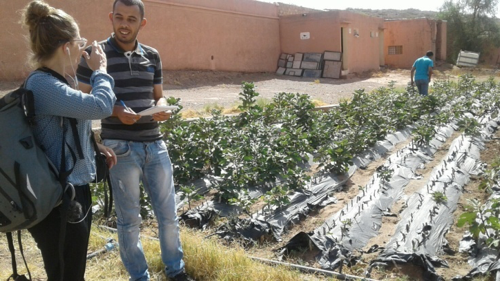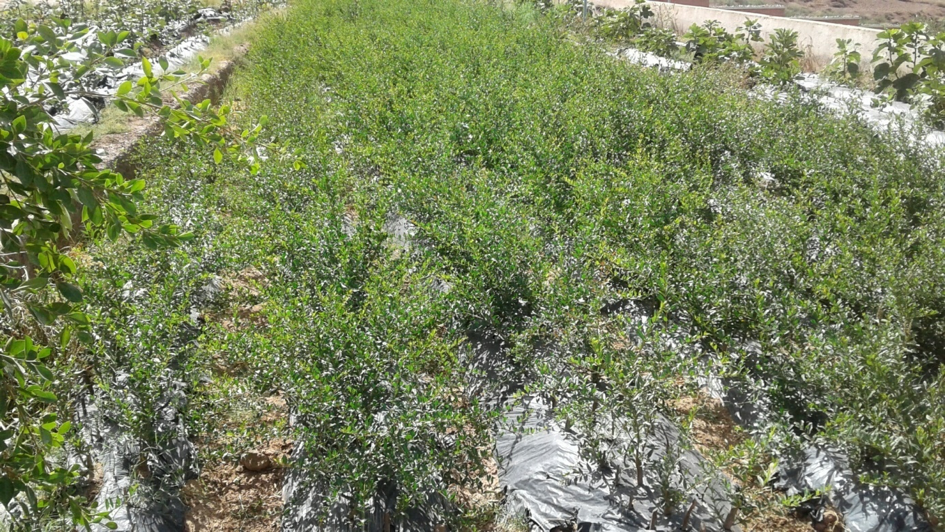By Jacqueline Seeley | Director of Development
For today’s project report, we are focusing on the municipality of Toubkal. Here, the High Atlas Foundation has ensured that all HAF-managed nurseries are equipped with sound water management, in particular pressure-drip irrigation systems.
The irrigated water for this region plays a vital role in HAF’s global efforts towards developing a sustainable organic agriculture value chain. Under this approach, HAF supports communities to capitalize on local resources and traditional knowledge to produce organic agricultural products. During the initial phase, production focused on organic walnut and almond production.
When we consider the impact of the whole value chain, the water management system is essential to ensuring long-term livelihoods of rural Moroccan communities. As water resources have been becoming more and more rare throughout Morocco, due to the negative effects of climate change, HAF employs the pressure-drip irrigation system. This process uses the least amount of water possible to ensure optimal growth of the plant, while reducing evaporation and waste. This infrastructure also reduces the time it takes to water the plants, allowing for greater tree production. And finally, this technique reduces the likelihood of weed growth, allowing farmers to optimize their time and increase production in a cost-effective manner.
As we hope you are aware, the Kingdom of Morocco is hosting the 22nd session of the Conference of the Parties (COP 22) to the UNFCCC in Marrakech this November 2016. It will be an exciting time to come together and commitment to global action and cooperation towards sustainable environmental practices as laid out in the Paris Agreement.
During the COP22, the High Atlas Foundation aims to highlight its organic value chain model as a solution to not only poverty, but peace throughout the country and region as well. The COP22 is a COP of action; a global climate action agenda to boost cooperative action among governments, cities, businesses, investors and citizens to reduce emissions and help vulnerable countries adapt to climate impacts. The first universal climate agreement was unanimously adopted at COP21, which took place in December 2015 in Paris. The agreement aims to limit the rise in global temperature "well below 2ºC". This COP22 in Morocco aims to bring all States into action through the mitigation of greenhouse gas emissions and ambitious national commitments.
As part of HAF's commitment to sustainable development and given our expertise in the agroforestry sector, we will be looking to market carbon offsetting initiatives to individuals, companies and states during the COP. Not only will this contribute to our 1 Billion Tree campaign, but also allow entities to uphold their commitments to mitigate greenhouse gas emissions. Global Giving will have a Bonus Day on September 21st, and we at the High Atlas Foundation plan to offer to our Global Giving supporters the opportunity to offset their carbon emissions.
Stay tuned here on Global Giving! You can also sign up for updates from the HAF newsletter for further information!
Project reports on GlobalGiving are posted directly to globalgiving.org by Project Leaders as they are completed, generally every 3-4 months. To protect the integrity of these documents, GlobalGiving does not alter them; therefore you may find some language or formatting issues.
If you donate to this project or have donated to this project, you can receive an email when this project posts a report. You can also subscribe for reports without donating.
Support this important cause by creating a personalized fundraising page.
Start a Fundraiser
